Egg Freezing: Taking Control of Your Reproductive Future
Are you feeling the weight of balancing career ambitions with the desire for motherhood? If that resonates with you, egg freezing may offer the relief you need. This empowering option allows women to preserve their fertility while navigating life’s challenges.
Whether you’re focused on advancing your career, making important personal choices, or managing health conditions like PCOS and endometriosis, egg freezing provides you with the flexibility to decide what’s best for you.
Now, you might be wondering: how does the process work? Is it truly the right choice for me? Understanding factors like age and egg quality is vital for your success.
As the saying goes, “The best time to plant a tree was twenty years ago. The second-best time is now.” With that in mind, let’s dive into this guide. First, we’ll explore the ideal age for the procedure. Then, we’ll discuss the associated costs. After that, we will address success rates and the emotional considerations that come into play.
Finally, as you continue reading, take a moment to reflect on whether egg freezing fits your plans. Discover how this option can empower you to take control of your reproductive future with confidence and clarity.
Why Egg Freezing is Becoming More Popular
Egg freezing is rapidly gaining traction as more women take control of their reproductive choices. In the UK, the number of women opting for egg freezing surged by 64% between 2019 and 2021, increasing from 2,576 to 4,215 cycles. This impressive rise comes from several factors.
First, many women now delay motherhood for career goals, personal circumstances, or health issues like PCOS and endometriosis. At the same time, awareness of age-related fertility decline encourages women to consider freezing their eggs earlier. The average age for egg freezing is now around 37.
Success rates largely depend on when women freeze their eggs and how many they preserve. Research shows that women who freeze at least 15 eggs before age 36 have an estimated 45% chance of achieving a live birth. Thanks to advancements in freezing techniques, these success rates continue to improve. Many fertility clinics report egg thaw survival rates as high as 94%, which boosts the likelihood of successful pregnancies.
Moreover, the emotional and psychological benefits of egg freezing are significant. This option allows women to focus on their careers, relationships, and personal goals without the immediate pressure of starting a family. As conversations around fertility preservation become more widespread, egg freezing is seen as a proactive and empowering choice. It provides women with greater flexibility and control over their futures.
Egg freezing represents more than just a medical procedure. It enables women to make informed decisions about their reproductive health. With its growing popularity, women can embrace their choices and shape their lives according to their personal timelines.
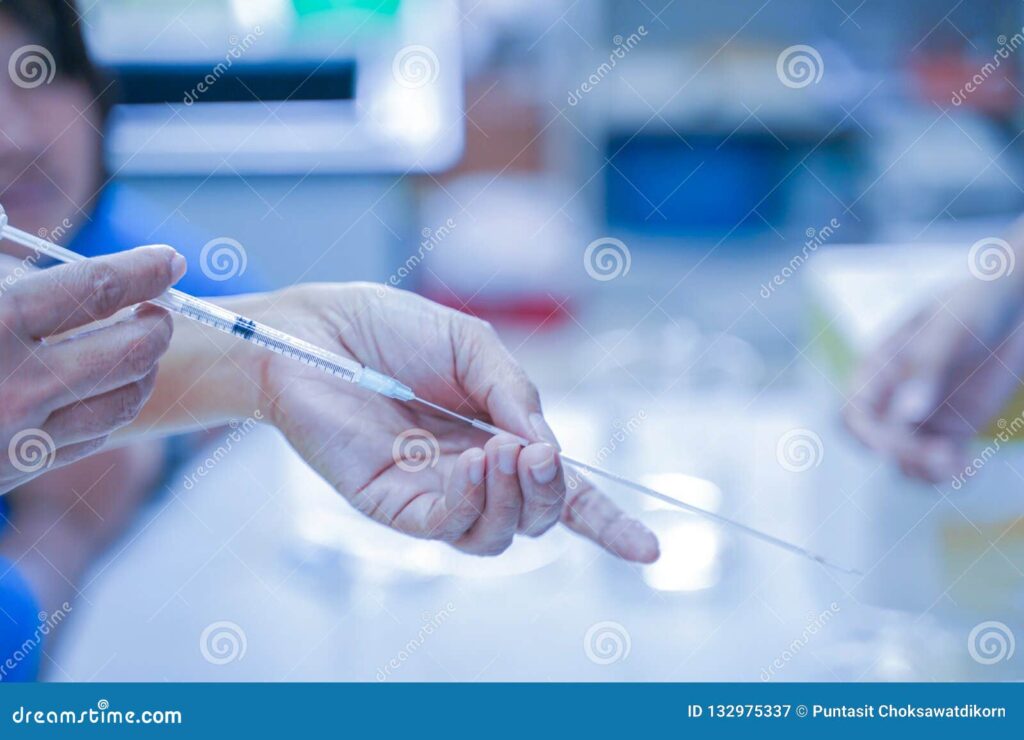
How Does Egg Freezing Work? A Step-by-Step Guide
Imagine having the ability to hit pause on your biological clock and seize control of your reproductive future. Egg freezing empowers women to do just that, allowing them to protect their fertility while living life on their own terms. Instead of feeling pressured to rush into motherhood, women can pursue their career aspirations, explore meaningful relationships, and focus on personal growth.
The journey begins with ovarian stimulation. During this stage, hormone injections help encourage the ovaries to produce multiple eggs. This phase typically lasts between 10 to 14 days and involves regular ultrasounds and blood tests to track progress.
Although this might seem daunting, many women find strength in taking these proactive steps toward securing their reproductive options. The sense of empowerment often outweighs initial concerns. Next comes the critical step of egg retrieval. A fertility specialist gently extracts the eggs using a fine needle while the patient is under mild sedation.
This procedure usually takes about 20 minutes. While the idea of retrieval may cause anxiety, most women experience only mild cramping or discomfort afterward—far less than they anticipated. Clinics provide essential support, ensuring a smooth recovery and boosting confidence throughout the process.
After retrieval, the eggs undergo a freezing technique known as vitrification. This rapid cooling method helps preserve the quality of the eggs. Research indicates that frozen eggs can remain viable for over a decade. Many remarkable success stories exist, with pregnancies achieved even after 10 years.
Such advancements in fertility preservation offer tremendous reassurance, enabling women to plan their futures without the stress of a ticking clock.
For many, egg freezing is much more than a procedure; it represents a crucial step toward peace of mind. As one fertility expert noted, “Knowledge is empowerment, and taking control of your fertility is truly liberating.” This process provides hope, freedom, and the ability to make informed choices about one’s life.
Ultimately, egg freezing is a symbol of empowerment. It allows women to embrace their uniqueness, pursue their goals, and navigate their futures with confidence. Rather than viewing it as an end, women can see egg freezing as a new beginning filled with endless possibilities.
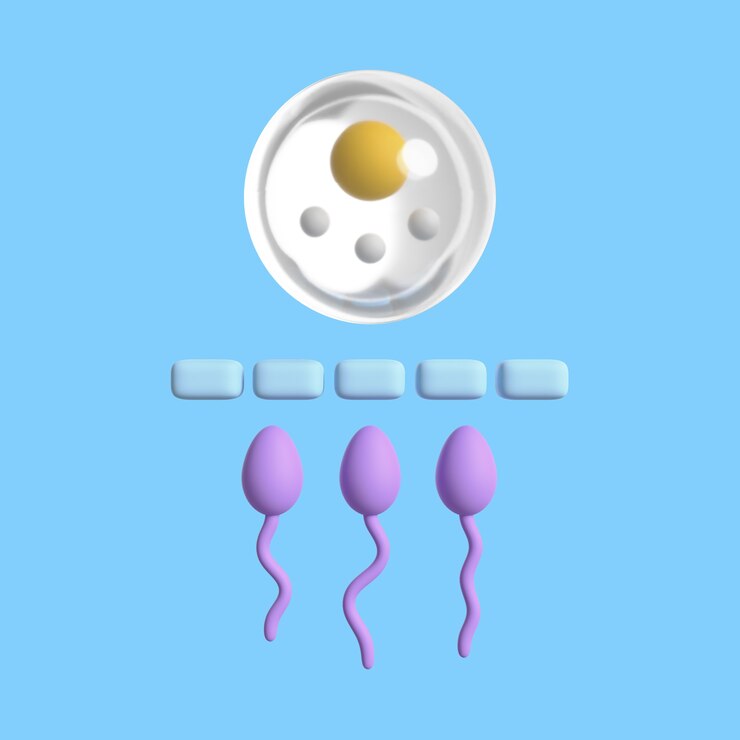
Photo by freepik
Is Egg Freezing Worth It? Success Rates and Best Age to Do It
Is there an ideal age to freeze your eggs? Many fertility specialists believe that timing is key. Studies show that the best age for egg freezing is before 35, as egg quality naturally declines over time. According to fertility experts, women who freeze their eggs in their late 20s or early 30s have a higher chance of a successful pregnancy, with success rates varying based on the number of eggs stored.
Research also highlights the importance of quantity. A study in Fertility and Sterility found that freezing at least 15 eggs before age 35 can lead to a 45% to 85% chance of pregnancy. However, individual success rates depend on several factors, including overall health, ovarian reserve, and the expertise of the fertility clinic. As Dr. Amber Cooper, a reproductive endocrinologist, explains, “Egg freezing is not a guarantee, but it offers women the chance to extend their fertility window and make choices on their own terms.”
For many women, egg freezing is about more than just medical statistics. It provides a sense of reassurance, allowing them to focus on their careers, relationships, and personal goals without immediate pressure. While the process comes with no certainties, it gives women the power to take control of their reproductive future. Consulting a fertility expert can provide the guidance needed to make an informed decision.
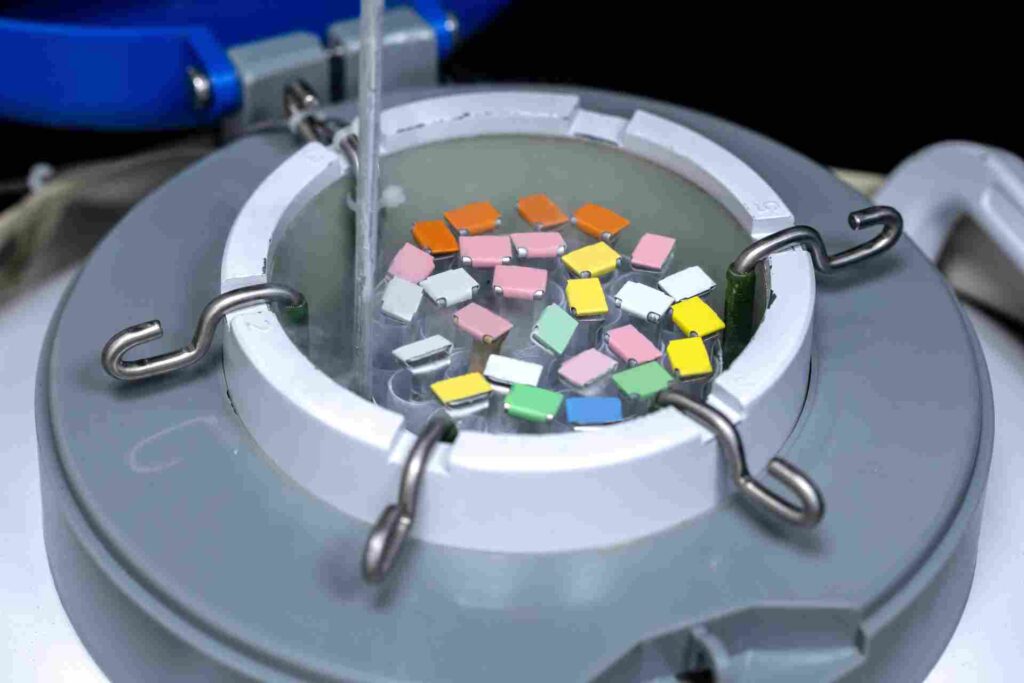
Photo by Harley Street Fertility Clinic
Egg Freezing Costs Across Africa and Worldwide: Is It Affordable?
Did you know that egg freezing success rates drop by nearly 50% after age 38? As women age, both the quality and quantity of eggs decline, making fertility preservation a time-sensitive decision. Egg freezing, or oocyte cryopreservation, has become a popular option for women who want to take control of their reproductive future. However, the cost of egg freezing varies significantly across different countries, making affordability a major consideration.
Global Overview of Egg Freezing Costs
The cost of egg freezing depends on factors such as location, clinic reputation, and additional services like medication and long-term storage. Below is a breakdown of estimated costs in various countries:
Success Rates and Age Considerations
Since egg quality decreases with age, when you freeze your eggs significantly impacts success rates. According to the American College of Obstetricians and Gynecologists (ACOG), a woman’s peak fertility window is in her 20s, with success rates dropping as she ages.
Women who freeze their eggs before 35 have a 50% chance of live birth per cycle.
For women in their late 30s, the success rate drops to 30-35% per cycle.
After age 40, success rates decline sharply, often below 15-20%.
Additionally, research indicates that the average number of eggs retrieved per cycle also declines:
Under 35: 21 eggs per cycle
Ages 35-37: 17 eggs per cycle
Ages 38-40: 14 eggs per cycle
This data highlights why freezing eggs at a younger age leads to better outcomes.
Affordable Egg Freezing: What to Consider
If you’re concerned about affordability, here are some key factors to keep in mind:
✔ Compare Clinics – Research fertility clinics in your region to compare services, success rates, and pricing structures. Some regions offer high-quality services at lower prices.
✔ Look for Payment Plans – Many clinics now provide financing options to help spread out the cost of egg freezing.
✔ Check Insurance & Employer Benefits – While most insurance plans do not cover elective egg freezing, some employers now include fertility preservation benefits as part of their healthcare packages.
✔ Consider Long-Term Expenses – In addition to the initial procedure, medication, storage fees, and future thawing/fertilisation costs should be factored in.
Final Thoughts: Is Egg Freezing Worth It?
Egg freezing is an investment in your future fertility, allowing women more control over family planning. While the costs may seem high, exploring payment options, employer benefits, and lower-cost regions can make the procedure more accessible.
If you’re considering egg freezing, don’t wait until fertility declines. Book a consultation with a trusted fertility specialist to discuss your options and take proactive steps towards securing your reproductive future.
Note: The costs mentioned are approximate and subject to change. Always contact clinics directly for the most up-to-date pricing and details on financial options.

Photo by freepik
The Emotional Side of Egg Freezing: What No One Tells You
“I believed egg freezing would ease my worries about the future. No one told me about the emotional weight—the waiting, the uncertainty, and the constant ‘what-ifs’.”
For many women, egg freezing represents empowerment and choice. But beyond the medical process, the emotional toll can be intense. Will the eggs be enough? Will they result in a successful pregnancy? The uncertainty can feel overwhelming, yet these emotions are far more common than many realise.
A study published in Reproductive Biomedicine Online found that more than 60% of women who undergo egg freezing experience heightened anxiety about their reproductive future. The combination of medical procedures, financial strain, and personal expectations often leads to unexpected emotional stress.
Fertility counsellor Dr. Emily Ross explains, “Egg freezing can provide peace of mind, but many women struggle with lingering doubts. Emotional preparation is just as vital as the physical steps in the process.”
A Personal Journey: From Fear to Reassurance
When Lisa, a 36-year-old architect, chose to freeze her eggs, she expected relief. Instead, she found herself consumed by worry. “I kept thinking—what if my eggs don’t survive the thaw? What if I never even use them?” she recalls. The uncertainty felt overwhelming, and she struggled to manage her emotions.
With time, Lisa found comfort in connecting with other women who had gone through the same journey. Speaking to a fertility coach helped her reframe her thoughts. “The emotional challenges of egg freezing were real, but I reminded myself that I was investing in my future. Now, instead of fear, I feel a sense of control.”
Coping with the Emotional Challenges of Egg Freezing
If you are feeling anxious, you are not alone. Experts recommend seeking support from a fertility counsellor, joining online or in-person support groups, and practising stress-relieving techniques like mindfulness and journaling. Engaging with others who understand this journey can provide reassurance and clarity.
Egg freezing is more than a medical procedure. It is an emotional experience that requires understanding, support, and self-compassion. Give yourself grace, lean on your support system, and remind yourself that you are taking a powerful step towards your future.

Your Fertility, Your Choice—Is Egg Freezing Right for You?
Egg freezing is a significant decision, but how do you know if it’s the right path for you? Start by reflecting on key questions: What are my long-term fertility plans? How does my age impact success rates? Can I handle the financial and emotional aspects of the process? These considerations are essential before taking the next step.
Another important choice is between egg freezing and embryo freezing. Research suggests that frozen embryos have a higher implantation success rate of around 60–70% per transfer, whereas frozen eggs have a success rate of approximately 20–30%. However, egg freezing offers more flexibility, especially for those who are not yet ready to create embryos. Consulting a fertility expert can help determine which option aligns best with your goals. For further reading, you can refer to the American Society for Reproductive Medicine.
Selecting the right fertility clinic is just as crucial. Look for clinics with proven success rates, advanced freezing techniques, clear pricing structures, and experienced specialists. According to fertility experts and data from the Human Fertilisation and Embryology Authority, clinic success rates can vary, making thorough research and comparison essential before committing. For more detailed studies, check out Reproductive Biomedicine Online.
Your reproductive future is in your hands. Take charge by gathering the right information, speaking to specialists, and making a choice that aligns with your future goals. The best decisions come from knowledge and confidence.
Thank you for reading our article and do not forget to subscribe to our website at www.roseflowereditorial.com to get the latest updates and follow us on Instagram, Facebook, and LinkedIn. In case you missed our previous article Gender Inclusion and Workplace Success, kindly click here.
Article written and edited by Patience Ubi
Featured Graphic Designed by Seye Somefun


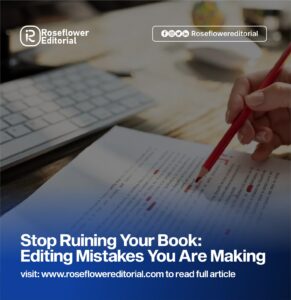
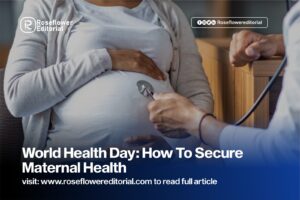

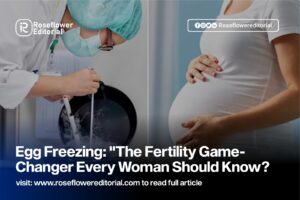





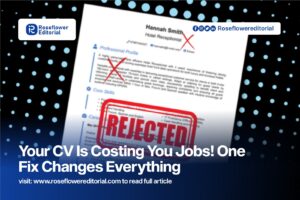

7 Responses
Very enlightening, thank you for sharing.
You are welcome, dear Tomison. I am glad you find the article enlightening.
You are darling.
Thank you.
Hah, Patience, you wrote this article like an expert.
I wish I were a medical professional. But you know what they say about wishes. If they were horses, beggars would have their jolly rides. Thank you dear, Rhoda.
Thank you, Rhoda.